Mediating Place at the time of the Pandemic: Workshop at Mcgill University, Architecture Departement
Life under the COVID quarantine has spotlighted an age-old challenge of representation – mediating remote presence, communicating the conditions of a place, and allowing others to experience through design. The workshop ‘Mediating Place’ is designed to open a discussion on the ways of communicating places out of reach using a transmedia approach to storytelling in architectural research.
The first session (Feb. 23, 9AM-12 EST) will reveal several concepts relating to mediating places: mediation, narration, and presence. This will follow a number of tutorials on combining mapping and immersive documentation, with emphasis on online tools using available and open-source software.
The second session (Feb. 25, 9AM-12 EST) will continue the discussion on spatial-narration and introduce VR design using Unity Game Engine. Using Unity the participant will gain the confidence to explore further the vast possibilities of VR in the context of mediation of places for architectural design research.
http://mtrlclass.xyz/mediatingsite/
Instructor: Eytan Mann, MTRL PhD Candidate
Special thanks to the Azrieli Foundation for its generous support.
‘Mediating Place’ is part of the Azrieli Global Studio program powered by McGill University and Technion IIT.
23/25 Feb. 2021

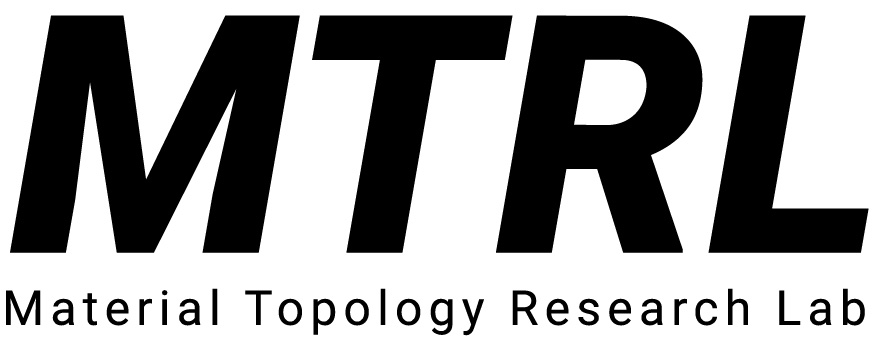
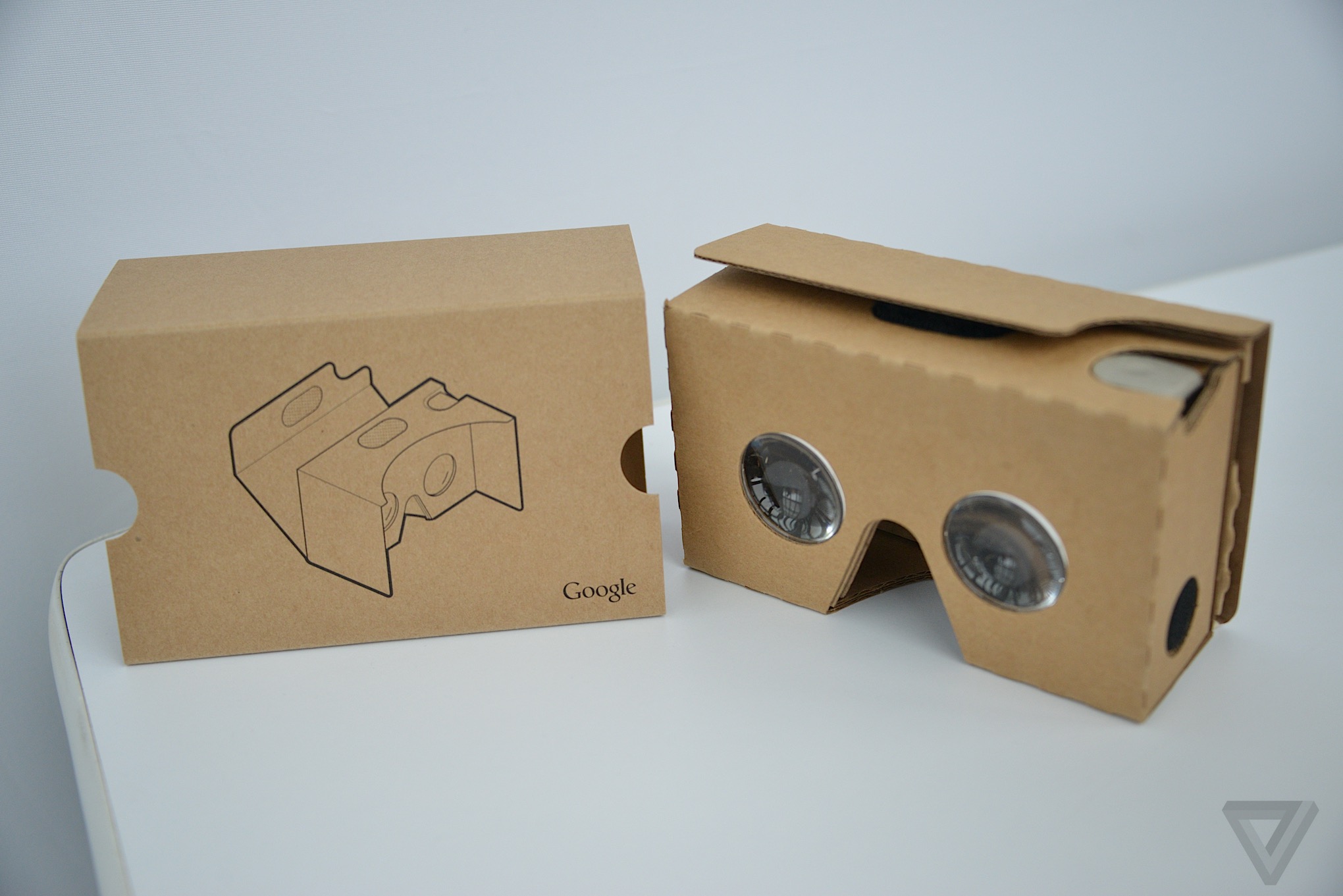
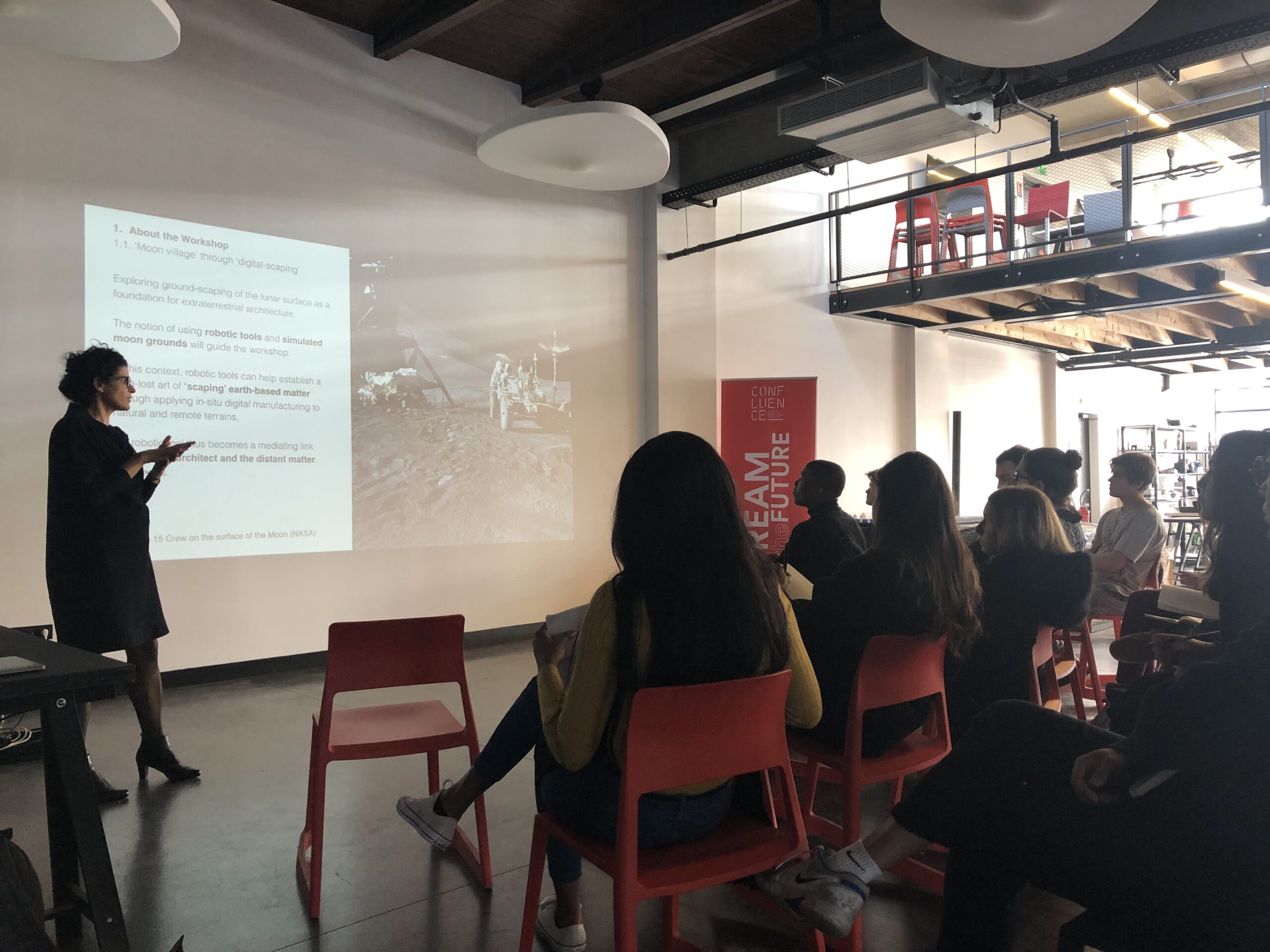
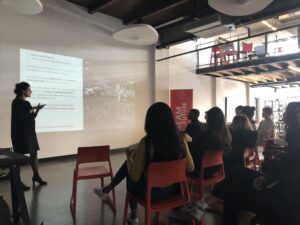 In accordance with the semester’s core theme- ‘Moon Village’, the workshop will explore the potential for ground-scaping of the lunar surface as a foundation for extraterrestrial architecture. The notion of ‘digital scaping’- using robotic tools and simulated moon grounds will guide the workshop. Advancements in robotic fabrication are bringing about new ways to craft materials- in vaster scales and on a wider range of materials. They also allow to perform various digital fabrication techniques (subtractive and additive), using the native soil for the construction of the architectural artefact. In this context, robotic tools can help establish a long-lost art of ‘scaping’ earth-based matter through applying in-situ digital manufacturing to natural and remote terrains. In the context of lunar construction, the robotic tool thus becomes a mediating link between the architect and the distant matter. The workshop will explore this form of robotic scaping of large-scale environments through applying traditional craft techniques on sand-based matter, and its shaping to a desired form using a hybrid of formative, subtractive and additive digital techniques. By doing so, it will explore ways to reinstate old forms of earth-based crafts, but also investigate new channels for scaling digital manufacturing beyond the production of objects. These channels will be demonstrated by design works conducted at the Material Topology Research Lab (MTRL), Technion-Israel Institute of Technology.
In accordance with the semester’s core theme- ‘Moon Village’, the workshop will explore the potential for ground-scaping of the lunar surface as a foundation for extraterrestrial architecture. The notion of ‘digital scaping’- using robotic tools and simulated moon grounds will guide the workshop. Advancements in robotic fabrication are bringing about new ways to craft materials- in vaster scales and on a wider range of materials. They also allow to perform various digital fabrication techniques (subtractive and additive), using the native soil for the construction of the architectural artefact. In this context, robotic tools can help establish a long-lost art of ‘scaping’ earth-based matter through applying in-situ digital manufacturing to natural and remote terrains. In the context of lunar construction, the robotic tool thus becomes a mediating link between the architect and the distant matter. The workshop will explore this form of robotic scaping of large-scale environments through applying traditional craft techniques on sand-based matter, and its shaping to a desired form using a hybrid of formative, subtractive and additive digital techniques. By doing so, it will explore ways to reinstate old forms of earth-based crafts, but also investigate new channels for scaling digital manufacturing beyond the production of objects. These channels will be demonstrated by design works conducted at the Material Topology Research Lab (MTRL), Technion-Israel Institute of Technology.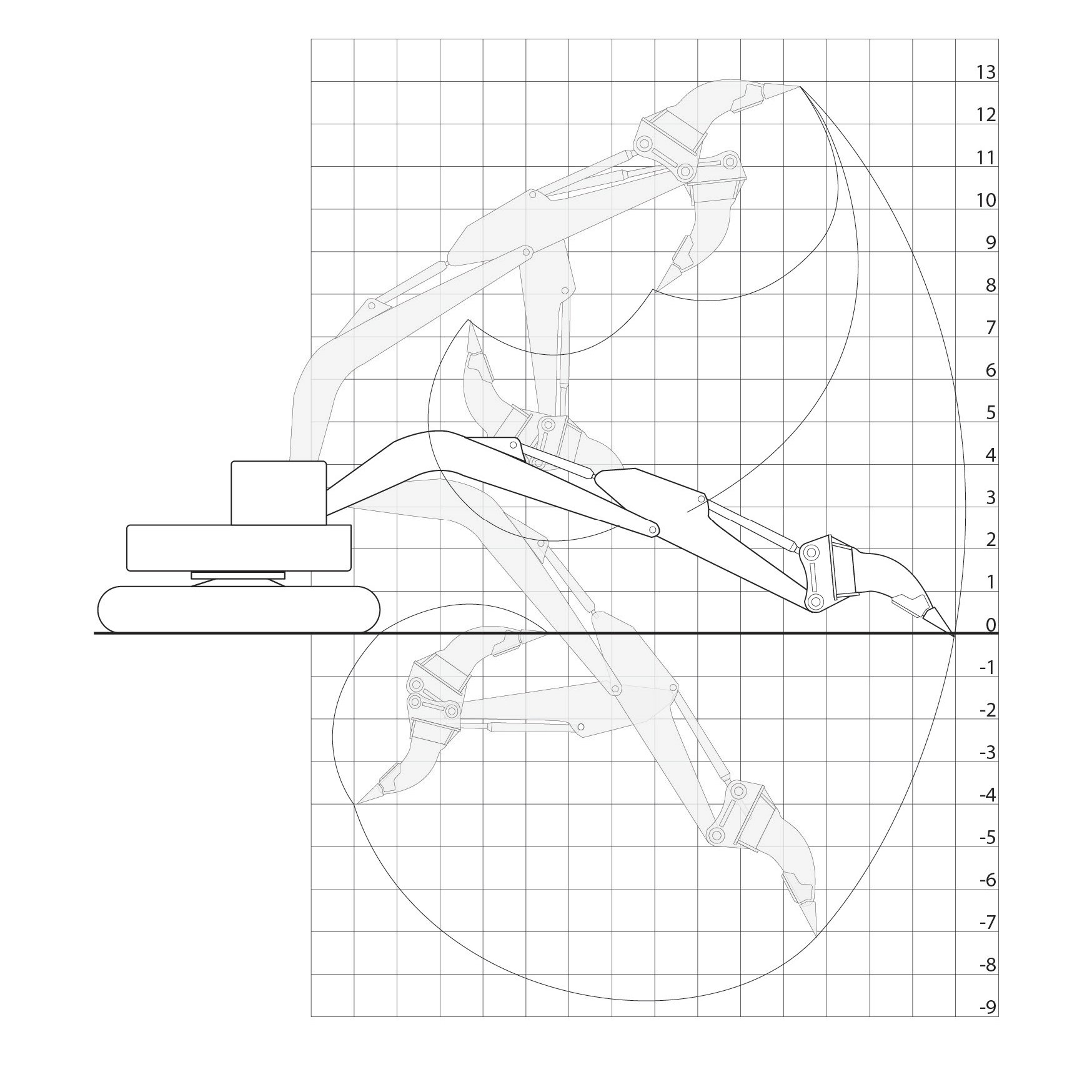
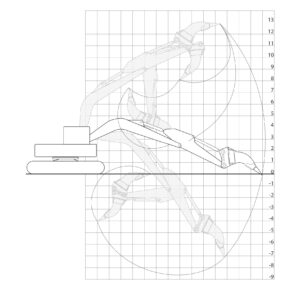
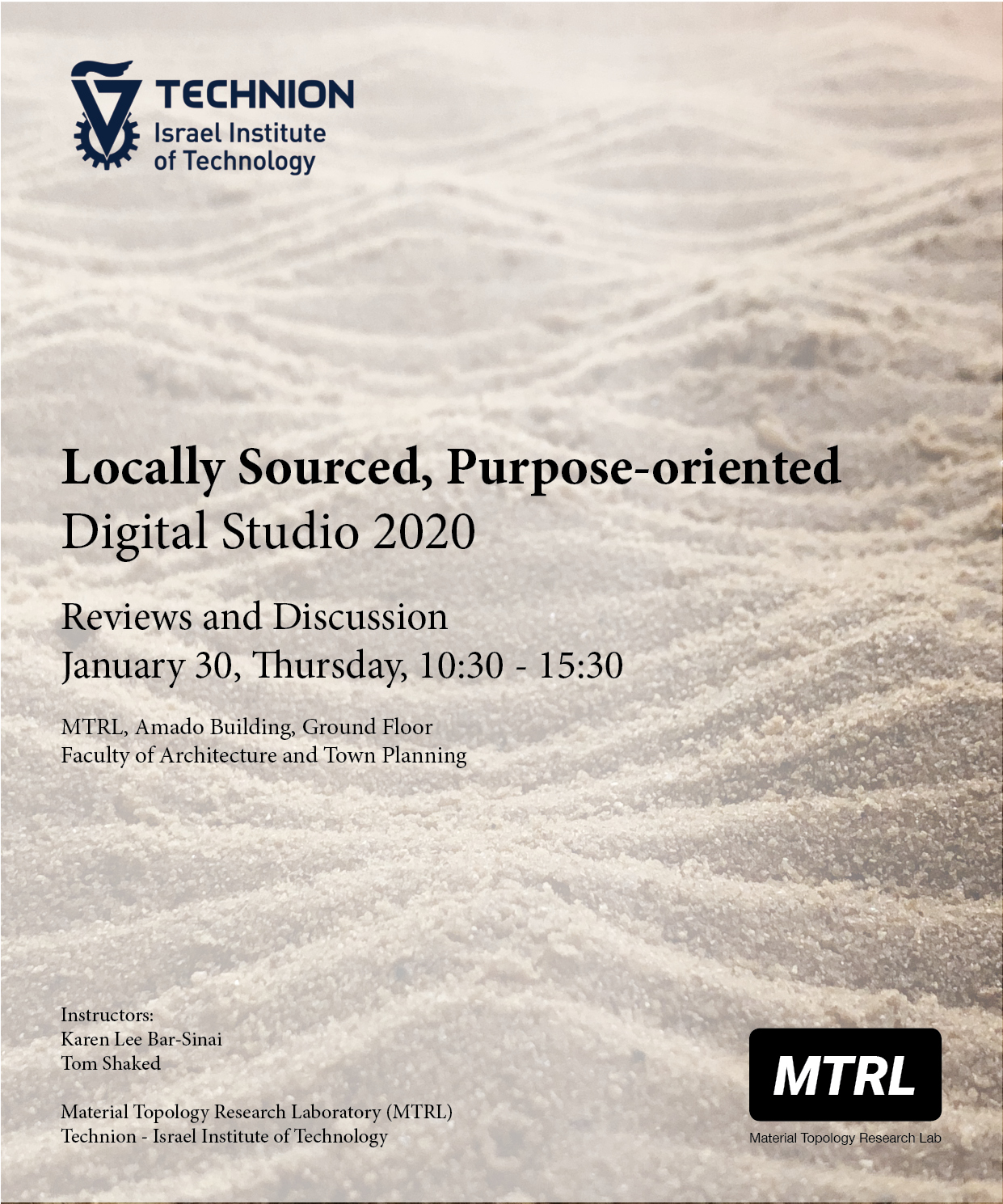
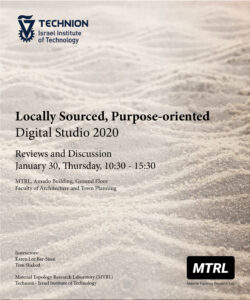 Advanced fabrication brings about the ability to perform architectural scale construction on site. This challenges the use of pre-fabricated materials in architecture, and calls to rethink construction practices at large. Robotic tools offer a sustainable construction alternative – reconstituting onsite soil into an architectural grounds and structures. This brings back to relevance locally resourced materials, as well as historic traditions of earth-construction. The 2020 digital architecture studio ‘Locally sourced, Purpose-oriented’, aims to contribute to this endeavor. In collaboration with Desert Mars Analog Ramon Station (DMARS), a selected site the Ramon Crater served as the exploration ground. The students collected and analyzed soil samples from the site, and envisioned a procedural fabrication and assembly process for a space analog. The analog’s construction envisioned the use of robotic tools and native site materials. The process included robotic groundscaping, robotic 3D printing with various binders, and multiple techniques for production and assembly. The design involved background research on common Israeli industrial building elements and their production process, historical regional construction techniques, and contemporary practice in onsite robotics. Together, these served as a ground for developing visions for an architecture which is unique to site, material composition and purpose, and facilitated by multi-scale robotic tools.
Advanced fabrication brings about the ability to perform architectural scale construction on site. This challenges the use of pre-fabricated materials in architecture, and calls to rethink construction practices at large. Robotic tools offer a sustainable construction alternative – reconstituting onsite soil into an architectural grounds and structures. This brings back to relevance locally resourced materials, as well as historic traditions of earth-construction. The 2020 digital architecture studio ‘Locally sourced, Purpose-oriented’, aims to contribute to this endeavor. In collaboration with Desert Mars Analog Ramon Station (DMARS), a selected site the Ramon Crater served as the exploration ground. The students collected and analyzed soil samples from the site, and envisioned a procedural fabrication and assembly process for a space analog. The analog’s construction envisioned the use of robotic tools and native site materials. The process included robotic groundscaping, robotic 3D printing with various binders, and multiple techniques for production and assembly. The design involved background research on common Israeli industrial building elements and their production process, historical regional construction techniques, and contemporary practice in onsite robotics. Together, these served as a ground for developing visions for an architecture which is unique to site, material composition and purpose, and facilitated by multi-scale robotic tools.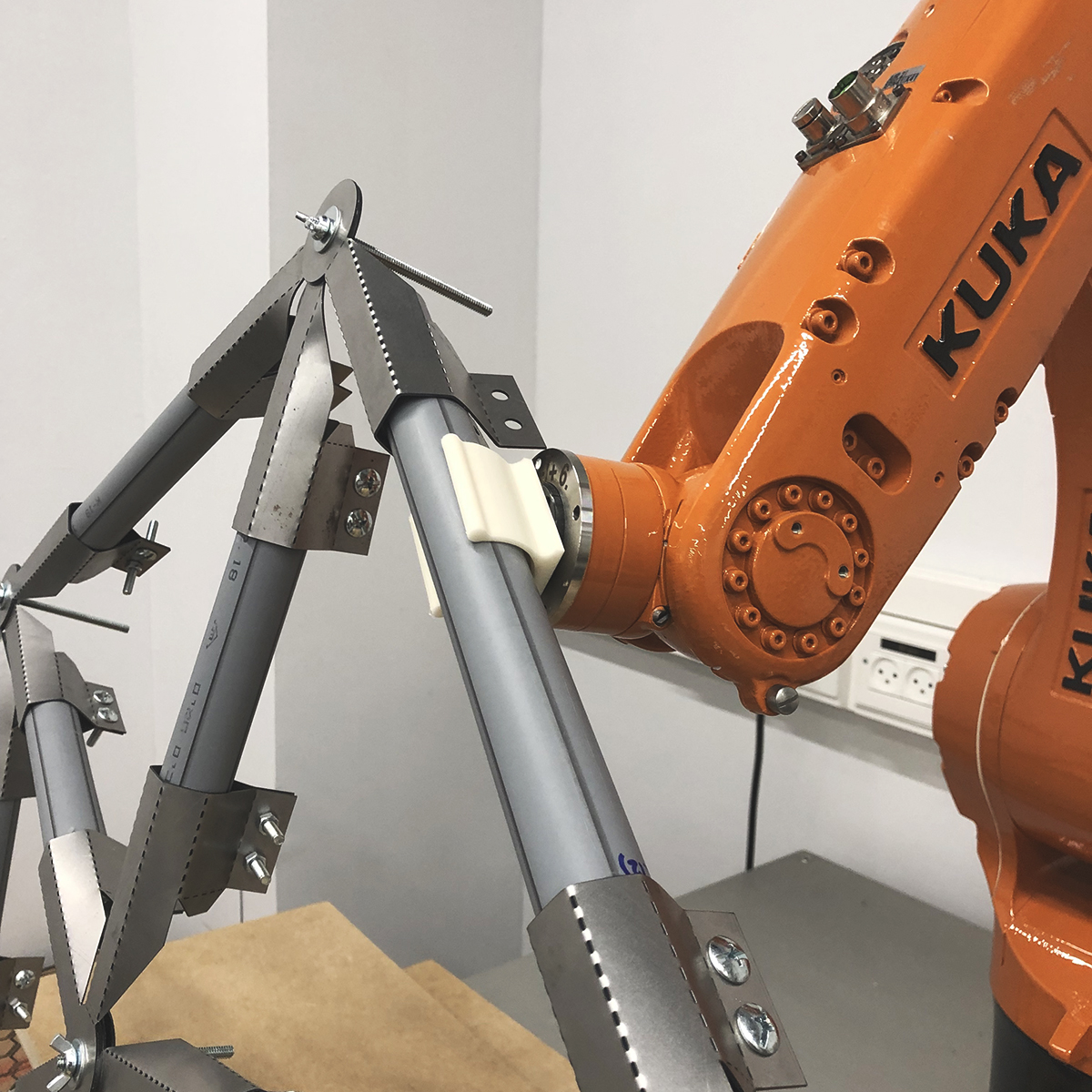
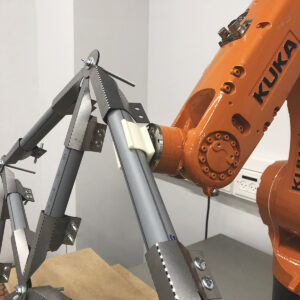 The aim of the course is to provide students with basic understanding, knowledge and abilities in the design and operation of robotic production cells for architectural purposes.
The aim of the course is to provide students with basic understanding, knowledge and abilities in the design and operation of robotic production cells for architectural purposes.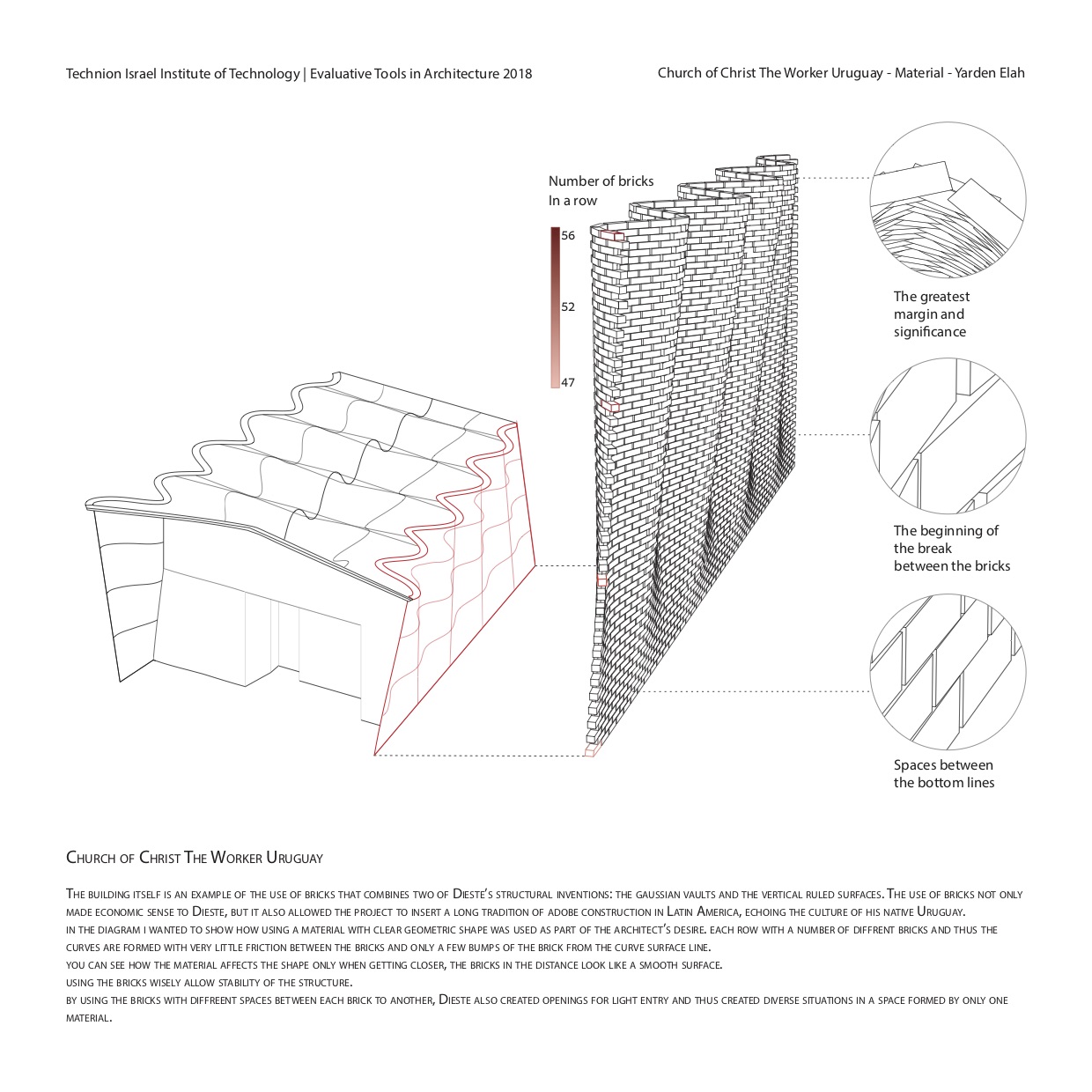
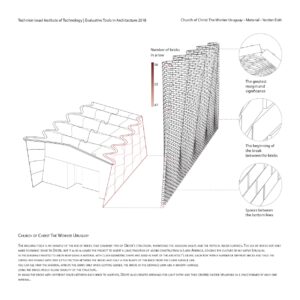 The course considers the multiple design strategies, representation methods, architectural media (including textual methods), to express the quality of an architectural proposal. The course considers three fundamental aspects that stand at the core the architectural research, namely the notions of form, forces, and material. Based on these three notions, each weekly session will be dedicated to the presentation of a series of seminal architectural projects that exemplify a particular strategy, representation, and media in order to evaluate the physical, material, virtual, and environmental qualities of an architectural project.
The course considers the multiple design strategies, representation methods, architectural media (including textual methods), to express the quality of an architectural proposal. The course considers three fundamental aspects that stand at the core the architectural research, namely the notions of form, forces, and material. Based on these three notions, each weekly session will be dedicated to the presentation of a series of seminal architectural projects that exemplify a particular strategy, representation, and media in order to evaluate the physical, material, virtual, and environmental qualities of an architectural project.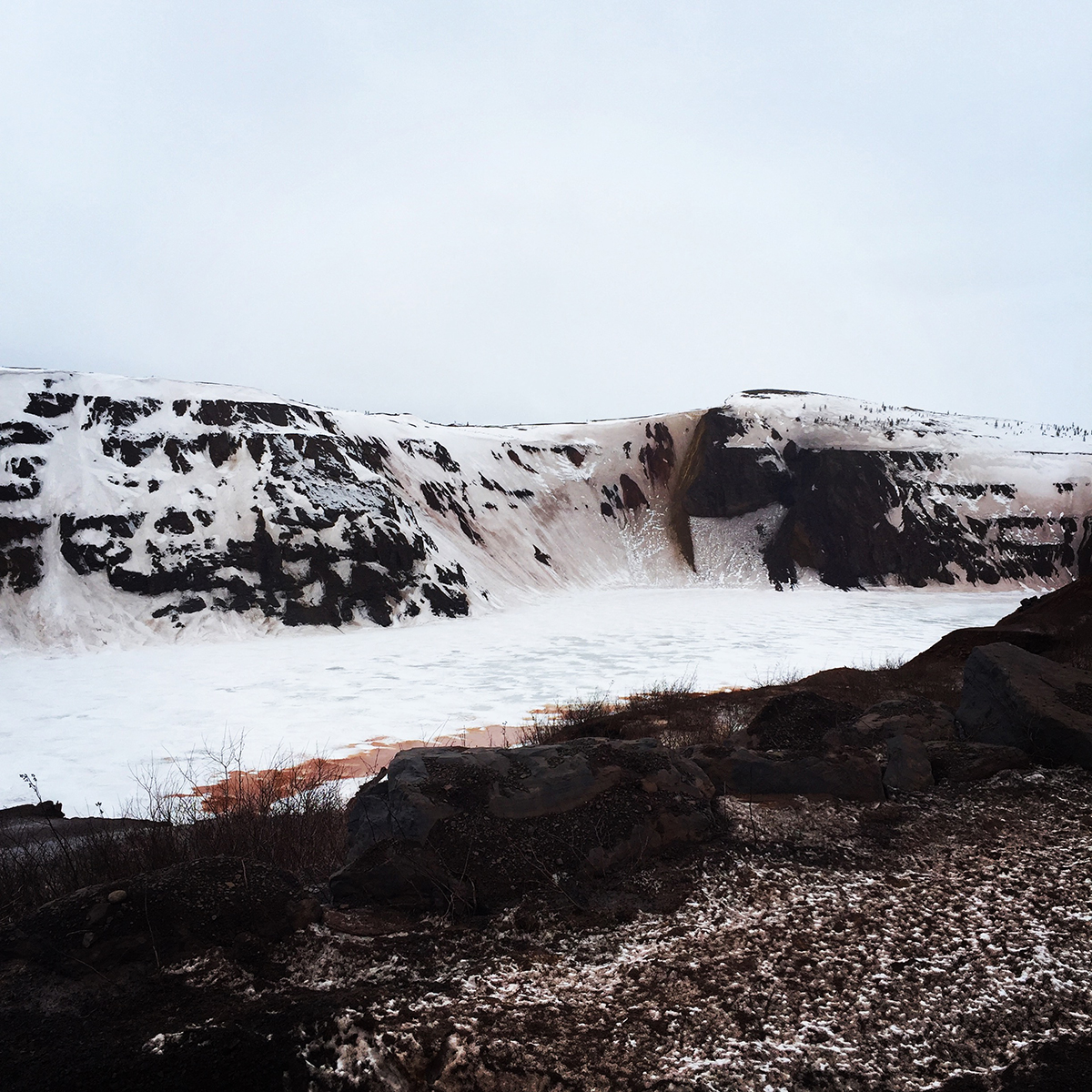
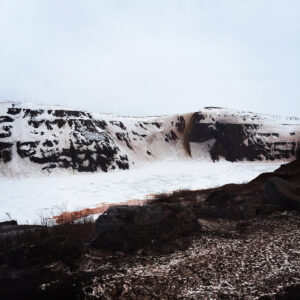 This studio is organized in the context of the Azrieli Global Studio program, a new collaborative initiative between McGill University in Montreal, Tel Aviv University and the Technion. The common theme for the thematic studio at the three schools concerns the architecture of extreme environments.
This studio is organized in the context of the Azrieli Global Studio program, a new collaborative initiative between McGill University in Montreal, Tel Aviv University and the Technion. The common theme for the thematic studio at the three schools concerns the architecture of extreme environments.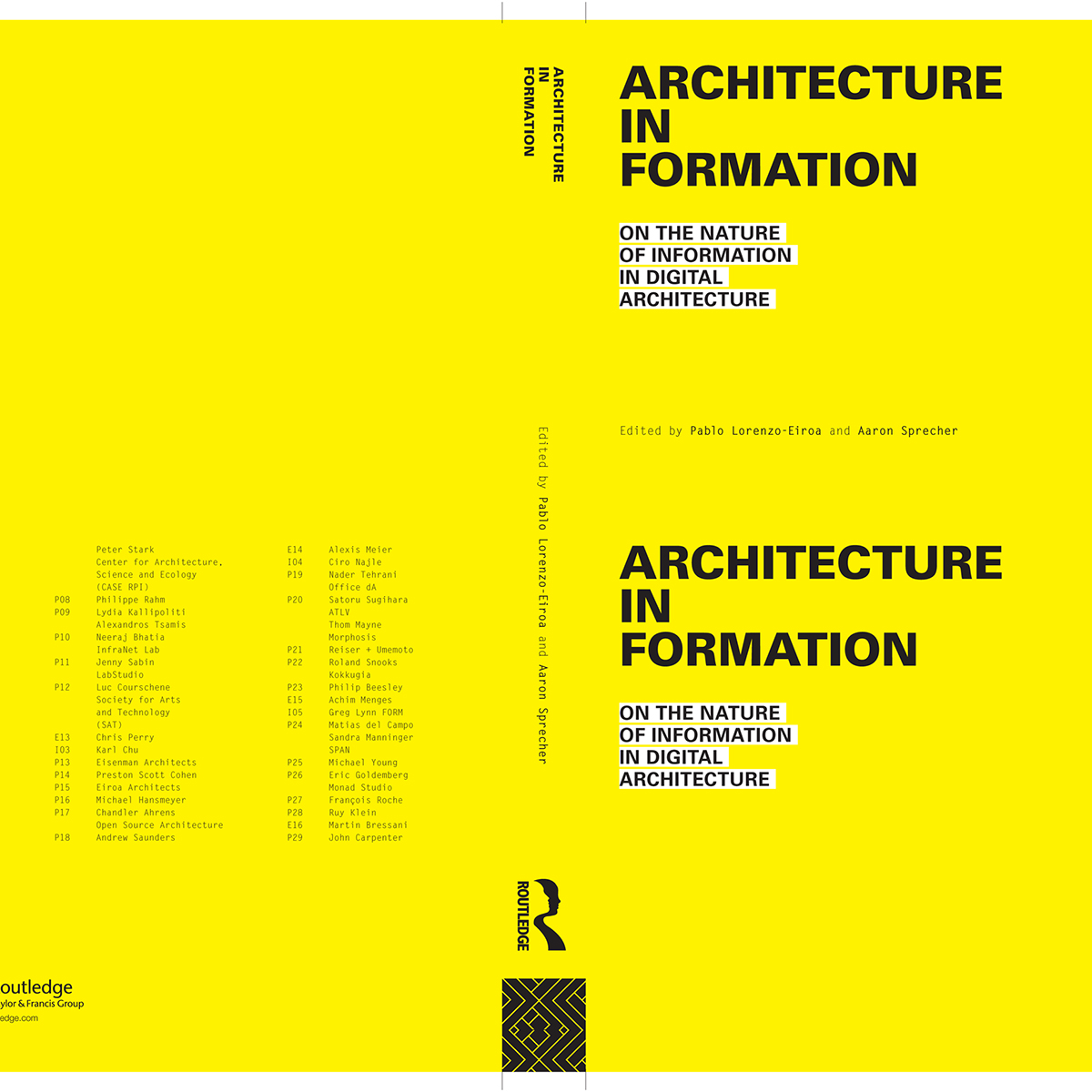
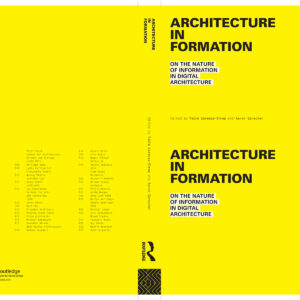 This course proposes to address the contemporary nature of the relation between design, technology, and the sciences across a series of seminal essays and manifestos that have influenced architecture since the postwar period to today. The structure of the course follows a series of topics that will be developed on a weekly basis. Thus, the content of the course will not be based on a chronological order but a selected list of critical essays that question the nature of information in architecture, the role of the architect, the definition of the architectural representation, the status of the design object among others. This course aims to develop a theoretical discourse capable of supplementing technical knowledge in architecture. In short, Architecture in Formation will provide the possibility to generate a theoretical standpoint while engaging with the act of designing.
This course proposes to address the contemporary nature of the relation between design, technology, and the sciences across a series of seminal essays and manifestos that have influenced architecture since the postwar period to today. The structure of the course follows a series of topics that will be developed on a weekly basis. Thus, the content of the course will not be based on a chronological order but a selected list of critical essays that question the nature of information in architecture, the role of the architect, the definition of the architectural representation, the status of the design object among others. This course aims to develop a theoretical discourse capable of supplementing technical knowledge in architecture. In short, Architecture in Formation will provide the possibility to generate a theoretical standpoint while engaging with the act of designing.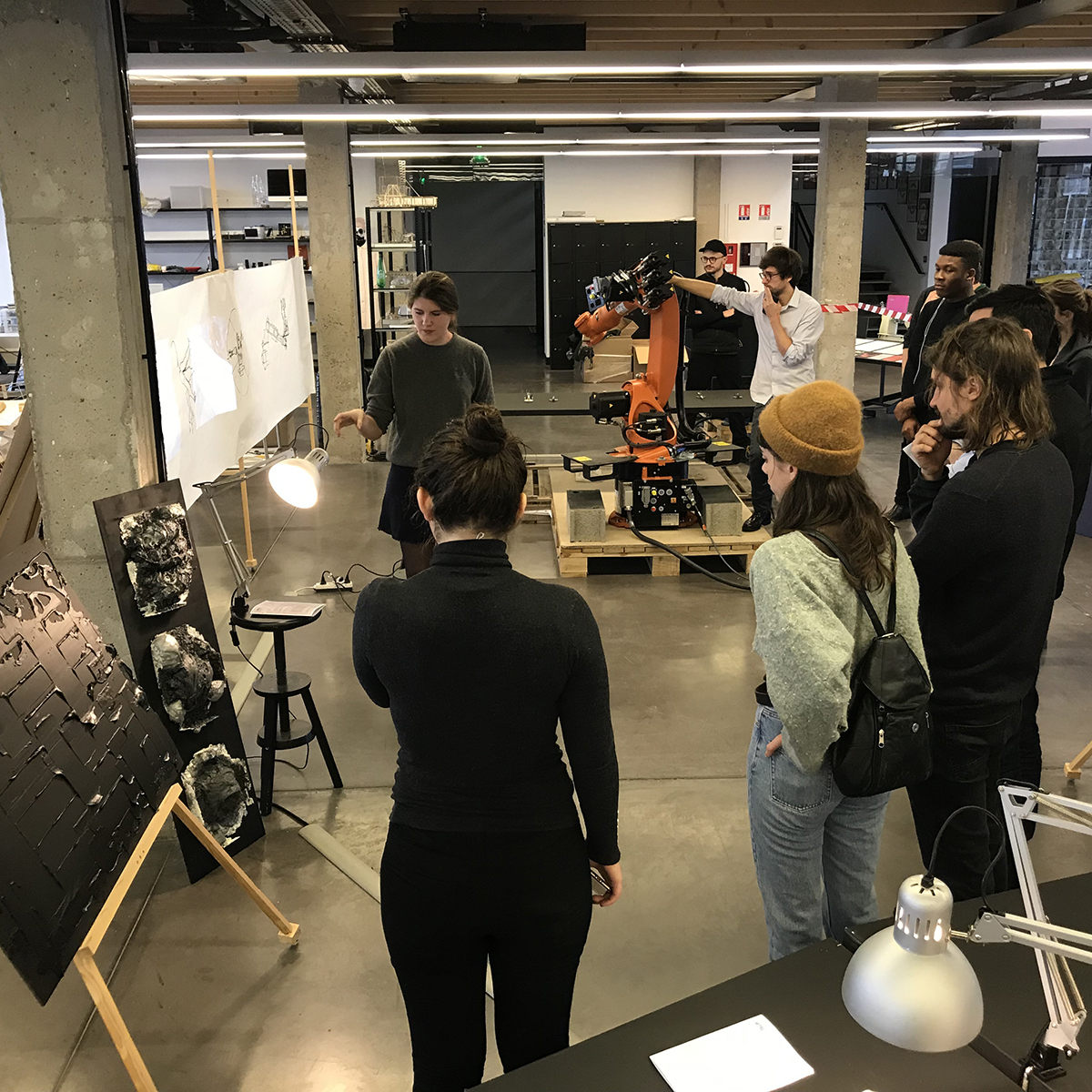
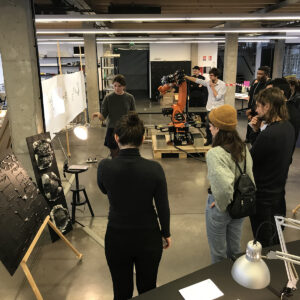 The workshop will focus on the creation of crafted architectural elements based on the analysis of manual processes and their translation to robotic fabrication methods. The topic comes from a recent research project at the Material Topology Research Laboratory (MTRL) at the Technion IIT. As part of the workshop, students will be exposed to the specific challenges posed by combining tools and concepts from the world of craft and robotics. Craft provides an ideal case study for this workshop since it requires translating manual actions into robotic procedures by developing rule-based systems, control schemes, and tools for material processing. The workshop will include three practical tasks which explore existing notions of digital manufacturing in respect to their counterparts in traditional architectural craft: Technical drawing, additive manufacturing, and subtractive manufacturing. Each task will display an increasing complexity with respect to the process of robotic fabrication.
The workshop will focus on the creation of crafted architectural elements based on the analysis of manual processes and their translation to robotic fabrication methods. The topic comes from a recent research project at the Material Topology Research Laboratory (MTRL) at the Technion IIT. As part of the workshop, students will be exposed to the specific challenges posed by combining tools and concepts from the world of craft and robotics. Craft provides an ideal case study for this workshop since it requires translating manual actions into robotic procedures by developing rule-based systems, control schemes, and tools for material processing. The workshop will include three practical tasks which explore existing notions of digital manufacturing in respect to their counterparts in traditional architectural craft: Technical drawing, additive manufacturing, and subtractive manufacturing. Each task will display an increasing complexity with respect to the process of robotic fabrication.